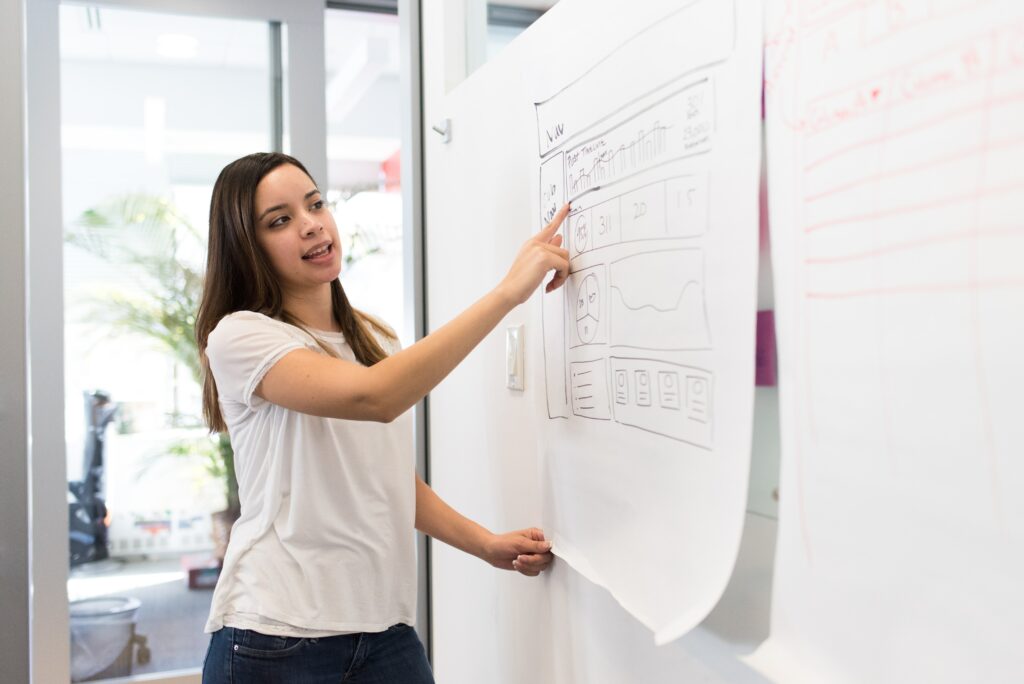An Increasing Number of Female and Non-binary STEM Students are Experiencing Imposter Syndrome

“I have this constant self-doubt; knowing that I have done my best, still I feel I’m not enough.” (STEM Women event attendee)
Imposter syndrome, defined as ‘a collection of feelings of inadequacy despite evident success’, has become an increasingly familiar term in recent years.[1] Many public figures, from actors to business leaders, now speak openly about their struggles with self-doubt, and it’s common to hear this thought pattern referenced in the media as well as during professional events and keynote speeches. Whilst Imposter Syndrome can affect anyone, it is most prevalent amongst women, and particularly those who could be described as high-achieving, with 70% feeling insecure and unworthy of their accomplishments. [2] They may identify as perfectionists who set high standards for themselves, and may also have a tendency to attribute their successes to external factors, such as luck or help from others, rather than their own abilities. For women in particular, a pressure to appear modest and humble can prevent them from owning their own successes.

“I interviewed for two software development internships, got two interviews and two offers. I still think I fooled them somehow in the technical interviews. Or worse, they only hired me because of my gender.” – London Event Attendee.
Imposter Syndrome can begin at an early stage, even before women commence their careers. STEM Women’s research into the issues affecting students and recent graduates in STEM, presented in our 2023 whitepaper, reveals a steady increase in the number of respondents from this community who feel that confidence is the greatest barrier to their career success[3]. The research shows more students and recent graduates identifying with the concept of Imposter Syndrome, with 61% of respondents saying they had suffered from this type of self-doubt (an increase of 4% from the previous year). This supports anecdotal feedback from graduate recruiters, who note that, ‘I lack confidence’ is the single most common response the standard interview question ‘what’s your biggest weakness?’ and with many universities offering workshops and career preparation programmes which seek to enhance students’ confidence. But does the issue lie with the students’ mindset, or with the external factors around them?

There are multiple attributing factors for the increase in Imposter Syndrome, including the impact of the pandemic, the effect of social media (where we only see the positive sides of other people’s lives) and, of course, the underrepresentation of women in STEM industries. It is little wonder that these students feel out of place and lack a sense of belonging when they are one of a very small number of women or non-binary people on their academic programme, and when they don’t see themselves represented in the STEM workforce. The impact of this is being felt in the talent pipeline in STEM careers, with lower levels of applications from female graduates in fields such as engineering, and talented yet underrepresented candidates removing themselves from recruitment processes.
The rapid development in science and technology is a further factor which specifically affects those working in STEM, with students struggling to keep up with the ever-changing landscape. With new discoveries and breakthroughs occurring almost daily, students may feel overwhelmed and intimidated by the sheer amount of information they need to know. Is their new idea really new, or have they simply not read enough of the latest research?
“Technology is always changing, new tools are always coming up, so I constantly feel like I don’t have enough experience. I feel this really holds me back.” Software Development student, University of Strathclyde

So how can this be addressed? One of the most effective way to combat Imposter Syndrome is to recognise it and acknowledge the feelings of self-doubt. Whilst Imposter Syndrome is more likely to affect women and those working in STEM (particularly where this intersects with minority characteristics such as disability and race), we should remind ourselves that imposter syndrome is a common phenomenon, affecting men and women, people at every stage of their career and in every sector. Even AI chatbot ChatGPT uses ’Imposter Syndrome’-type language, caveating its own responses (‘As an AI language model’) – and we can certainly learn from this and avoid using language which minimises what we have to say (‘I just..’, ‘I’m not an expert but’ and ‘if that makes sense’). It can also be helpful to shift our focus from perceived weaknesses to strengths and accomplishments, with many confidence coaches recommending writing down achievements and keeping this list to hand.
Additionally, networks, support systems and mentoring can be a great way to boost self-confidence; for students this might be their peers, faculty, or professionals in their field, and for those in industry, mentorship may come from a line manager, professional mentor or coach. Having someone to turn to for trusted advice and constructive feedback can help to increase confidence and provide perspective. Finally, both men and women can act as allies in the workplace, encouraging equal representation and recognition to creative truly inclusive workplaces – STEM Women’s research shows that equal representation is increasingly valued and even expected by incoming graduates, as they seek out workplaces where they will feel that they belong and can be valued for their own achievements.[4]

[1] Harvard Business Review, May 2008 Overcoming Imposter Syndrome (hbr.org)
[2] Dr Valerie Young, (The Secret Thoughts of Successful Women, 2011).
[3] STEM Women whitepaper 2023 https://www.stemwomen.com/stem-women-whitepaper
[4] From 2019 to 2022, the number of respondents who said that the gender balance of a company would influence whether they would accept a job offer rose by 15% (STEM Women whitepaper 2023)
Download the full whitepaper here – https://www.stemwomen.com/stem-women-whitepaper
